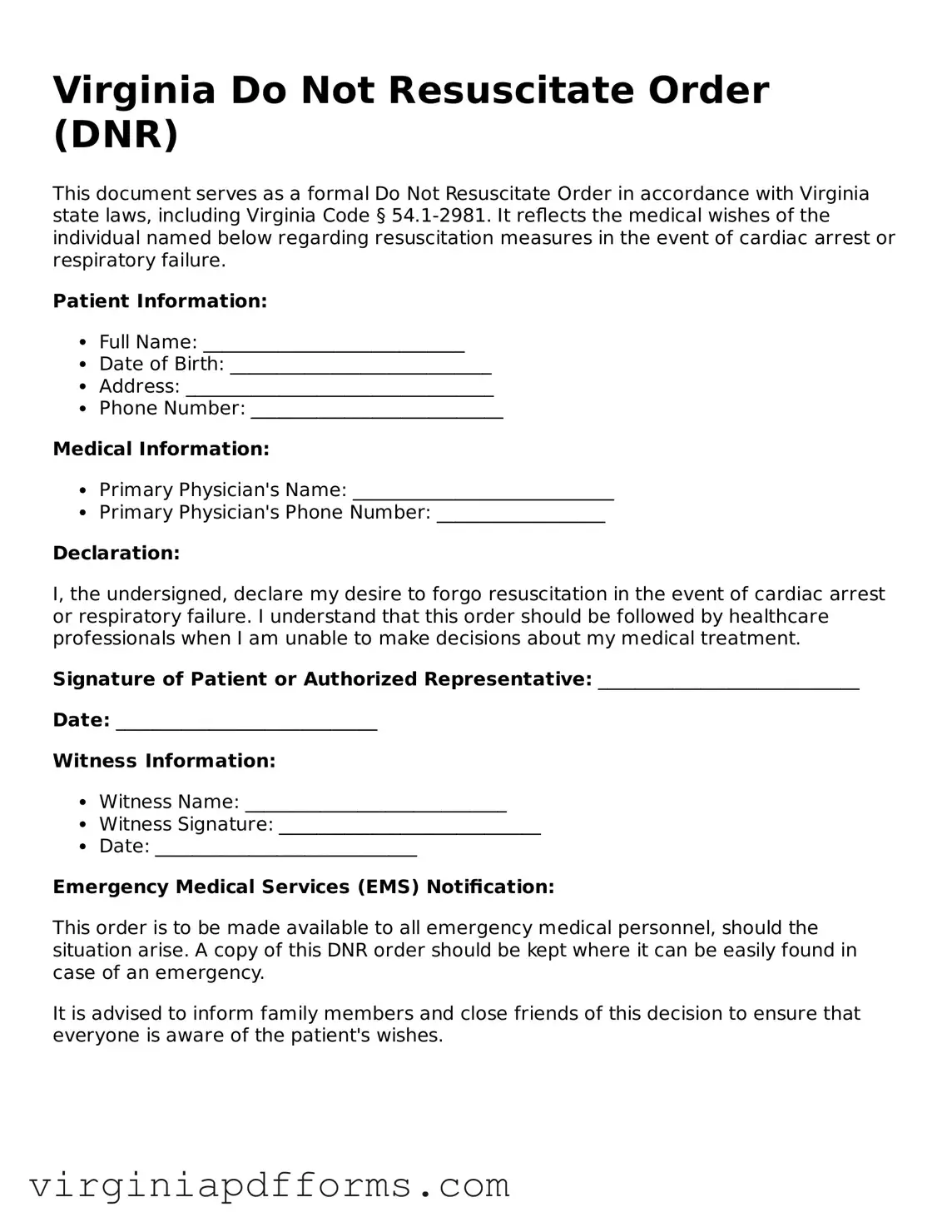Attorney-Approved Virginia Do Not Resuscitate Order Document
A Virginia Do Not Resuscitate Order (DNR) form is a legal document that allows individuals to express their wishes regarding resuscitation efforts in the event of a medical emergency. This form is crucial for ensuring that healthcare providers respect the preferences of patients who may not wish to receive life-saving measures. Understanding the DNR process can empower individuals and their families to make informed decisions about end-of-life care.
Access My Document Now

Attorney-Approved Virginia Do Not Resuscitate Order Document
Access My Document Now

Access My Document Now
or
Free Do Not Resuscitate Order File
Need this form wrapped up fast?
Finish Do Not Resuscitate Order online — edit, save, download without effort.